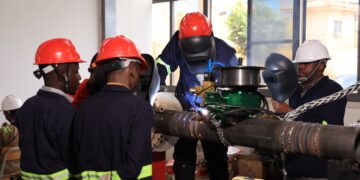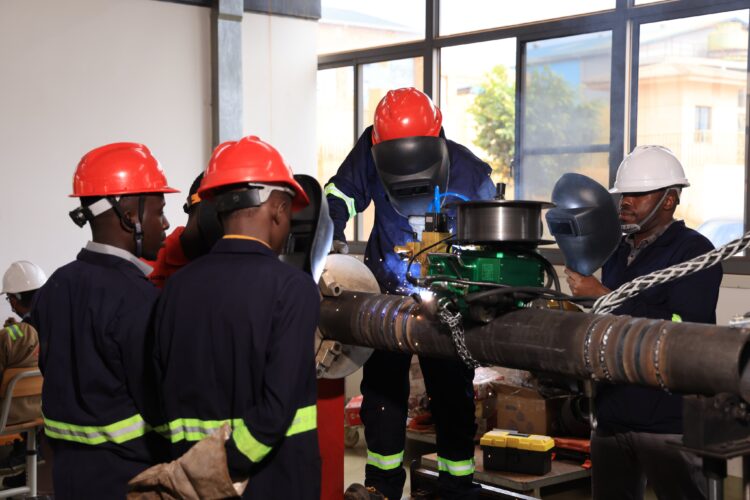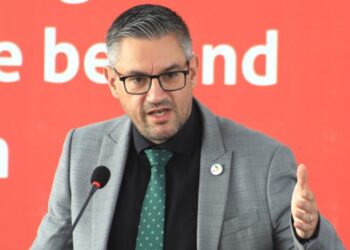By Leonard Kamugisha Akida,
KAMPALA
Civil society groups from East African Community member states have strongly condemned the financial close of the first tranche of funding for the East African Crude Oil Pipeline (EACOP), citing climate change crisis.
In a March 27, 2025, statement, the groups comprising of over 50 Community Based and Civil Society Organizations from Uganda, Tanzania and DR. Congo described the move as a “shame,” highlighting the worsening climate crisis in the region as proof that further fossil fuel development is reckless and destructive.

On March 26, 2025, the EACOP Company Ltd announced it had secured the first portion of external financing for the 1,443-kilometer pipeline, despite growing opposition from environmental and human rights advocates. The financing reportedly involves five banks, including the African Export and Import (Afrexim) Bank, Standard Bank from South Africa, Stanbic Bank Uganda, KCB Bank Uganda, and the Islamic Corporation for the Development of the Private Sector.
The announcement came on the same day that extreme heavy rains hit Uganda’s capital, Kampala causing severe flooding that claimed seven lives, including two children. The heavy rainfall also left many residents homeless, others stranded in traffic gridlock as the roads became impassable.
Similar climate-related disasters have devastated other parts of East Africa in recent months. In December 2023, landslides in Tanzania’s Hanang District, one of the areas affected by EACOP, killed at least 89 people and destroyed entire neighborhoods. Meanwhile, in the DRC, prolonged dry conditions in early 2025 have disrupted agriculture and fishing, further exacerbating food insecurity.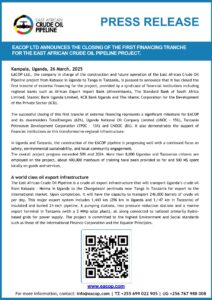
“The timing of this financing is disturbing,” the civil society statement read. “Even as East Africans are suffering from climate-related disasters, financial institutions are prioritizing profits over people’s lives by supporting a project that will significantly increase carbon emissions.”
CSOs warn that EACOP threatens livelihoods, biodiversity, and local economies. According to the group, the pipeline project has already displaced tens of thousands of people and continues to pose risks to the agricultural, tourism, and business sectors
“Over its 25-year operational period, the full value chain of the pipeline is expected to produce an estimated 379 million metric tonnes of carbon emissions,” the group alleged.
They also criticized banks that claim to support Africa’s development while financing projects that contribute to environmental destruction.
“It is not too late to reconsider,” the coalition urged, calling on financial institutions yet to commit to EACOP to withdraw their support and instead invest in green industries that promote sustainable prosperity for East Africans.
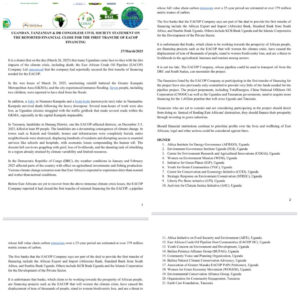
The signatories warned that if financial institutions continue backing EACOP, they could face legal action and other measures.
“We will not sit back while our future is sold off to oil companies. The fight against EACOP is far from over,” signatories warned in a statement.
The document intensifies the pressure on both the Ugandan and Tanzanian governments, as well as project financiers and stakeholders.
As the debate over EACOP intensifies, the global spotlight remains on whether the controversial pipeline will proceed amidst growing resistance from environmental groups, local communities, and climate activists.
